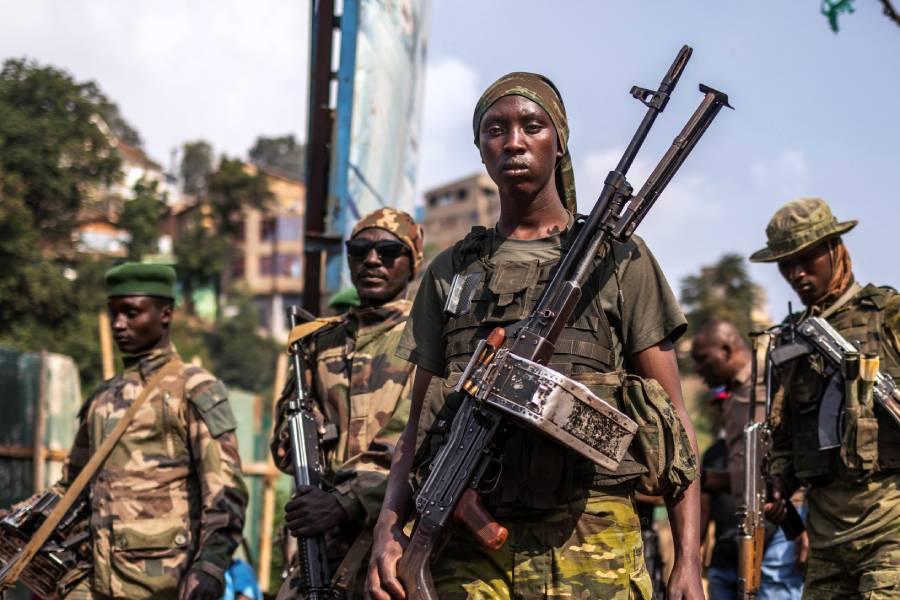Introduction: Decoding the Democratic Republic of the Congo’s Enduring Conflict Through Historical Landmarks
Since its emancipation from Belgian colonial rule in 1960, the Democratic Republic of the Congo (DRC) has endured a complex and often violent journey marked by political instability, ethnic discord, and humanitarian emergencies. The ongoing conflict in this vast nation is deeply rooted in its colonial past, intertwined with struggles over natural resources and ethnic divisions. To fully comprehend the persistent challenges facing millions of Congolese today, it is vital to revisit key historical milestones that have shaped this protracted crisis. This article explores eleven significant dates spanning from independence to current times, offering insight into how these events have influenced the DRC’s quest for peace and sustainable development.
Historical Turning Points Defining Six Decades of Turmoil in the DRC
The trajectory of conflict within the DRC can be traced back to its independence from Belgium in 1960—a moment that ignited fierce power struggles among emerging political leaders. Patrice Lumumba’s attempt to unify control was met with resistance not only domestically but also internationally, culminating in his assassination early in 1961. This event exposed deep-seated ethnic rivalries and fractured political alliances that would haunt the country for decades.
During Mobutu Sese Seko’s authoritarian reign throughout much of the 1970s and 1980s, corruption became endemic while dissent simmered beneath a veneer of stability. The collapse of Mobutu’s regime triggered a cascade of conflicts beginning with the First Congo War (1996-1997), which drew neighboring states into what would become known as “Africa’s World War.” Laurent-Désiré Kabila’s rise to power after toppling Mobutu initially promised reform but soon gave way to renewed violence during the Second Congo War starting in 1998—an even more devastating chapter involving multiple armed factions vying for control.
Kabila’s assassination in 2001 further destabilized governance structures amid ongoing clashes fueled by competition over mineral-rich territories abundant with cobalt, diamonds, and gold—resources critical both locally and globally. Although democratic elections held in 2006 offered a glimmer of hope for reconciliation, sporadic violence persists today as armed groups continue exploiting resource wealth at great human cost.
Colonial Legacy and Resource Exploitation: Core Drivers Behind Persistent Instability
The enduring turmoil within the DRC cannot be disentangled from its colonial heritage under Belgian rule—a period characterized by ruthless extraction policies prioritizing European profit over indigenous welfare. Colonial administrators deliberately exacerbated ethnic divisions as a means to maintain dominance while establishing an economy heavily reliant on resource exploitation without building robust institutions capable of self-governance or equitable development.
Post-independence external actors perpetuated these exploitative dynamics by supporting regimes aligned with their economic interests rather than fostering genuine sovereignty or social cohesion. Today’s conflicts are frequently linked directly to battles over lucrative minerals essential for modern technologies such as electric vehicle batteries—highlighting how global demand continues fueling local strife.
Below is an updated overview illustrating pivotal events where resource wealth intersected dramatically with conflict escalation:
| Year | Event | Consequences on Conflict Dynamics |
|---|---|---|
| 1960 | Independence Declared from Belgium | Began intense internal power disputes among factions. |
| 1994 | Rwandan Genocide Aftermath | An influx of refugees intensified regional tensions. |
| 2006 td > | First Multiparty Elections Held td > | Raised hopes yet failed to resolve mining-related conflicts. td > < / tr > |
| 2015 td > | UN Sanctions Target Armed Groups Profiting From Minerals td > | Increased international pressure on illicit trade networks. td > |
Strategies Toward Lasting Peace and Socioeconomic Progress in the DRC
Achieving durable peace within such a multifaceted environment demands comprehensive strategies addressing political inclusion, justice reform, economic empowerment, and regional cooperation simultaneously. Central recommendations include amplifying marginalized voices—particularly women and youth—in national dialogues aimed at reconciliation; reinforcing judicial systems at local levels to combat corruption effectively; aligning international aid programs closely with grassroots priorities; plus fostering partnerships across borders targeting arms trafficking and illegal mining operations undermining stability.
Economic revitalization must focus on creating legitimate employment opportunities beyond extractive industries prone to fueling conflict economies. Infrastructure investments connecting remote provinces can stimulate commerce while improving access to education empowers younger generations toward peaceful civic engagement.
Key pillars underpinning these efforts encompass:
- Civic Participation: Engaging communities actively ensures accountability during peacebuilding processes.
- Sustainable Resource Governance: Transparent management frameworks reduce incentives for violent competition over minerals.
- Global Collaboration: Harnessing expertise alongside financial support enhances capacity-building tailored specifically for Congolese realities.
Conclusion: Reflecting on Challenges Ahead While Embracing Hopeful Prospects for Stability
Reviewing six decades marked by upheaval reveals not only profound adversity but also remarkable resilience among Congolese populations striving toward recovery amidst adversity. Each landmark event underscores both setbacks endured due largely to external interference combined with internal fractures—and moments where progress seemed attainable through democratic reforms or peace agreements.
As global attention remains crucially focused on this geopolitically significant region rich in strategic resources vital worldwide supply chains—the imperative grows stronger than ever before—to support inclusive governance models coupled with sustainable development initiatives designed around local needs rather than imposed agendas alone.
While obstacles remain formidable—from entrenched militia activity continuing into recent years according to UN reports—to fragile state institutions struggling under immense pressures—the potential exists through coordinated efforts between domestic stakeholders supported by committed international partners—for dialogue-driven renewal paving pathways toward lasting security across all provinces within this vast nation-state rich both culturally & materially alike.
